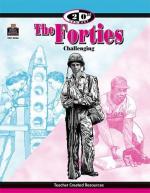|
This section contains 715 words (approx. 3 pages at 300 words per page) |

|
Modernization.
The most important development in theology in the 1940s was neo-orthodoxy, a significant reformulation of the Calvinist core of Protestantism. Guided by Protestant theologians such as Reinhold Niebuhr and his brother H. Richard Niebuhr, as well as Swiss theologian Karl Barth and German exile Paul Tillich, neo-orthodoxy harmonized liberal Protestantism with a host of modern concepts — including existentialism, psychoanalysis, and Marxism — to revitalize the Calvinist emphasis on sin and individual free will. Like Catholic modernism and the reconstruction of Conservative and Reform Judaism, the neo-orthodox intellectual movement began during the Depression but became most important in the 1940s. During the decade, events such as World War II, the Holocaust, and the atomic bombing of Hiroshima and Nagasaki seemed to sanction the neo-orthodox worldview, which was based on the insufficiency of human reason and good will. Disseminated in hundreds of seminaries in the...
|
This section contains 715 words (approx. 3 pages at 300 words per page) |

|




